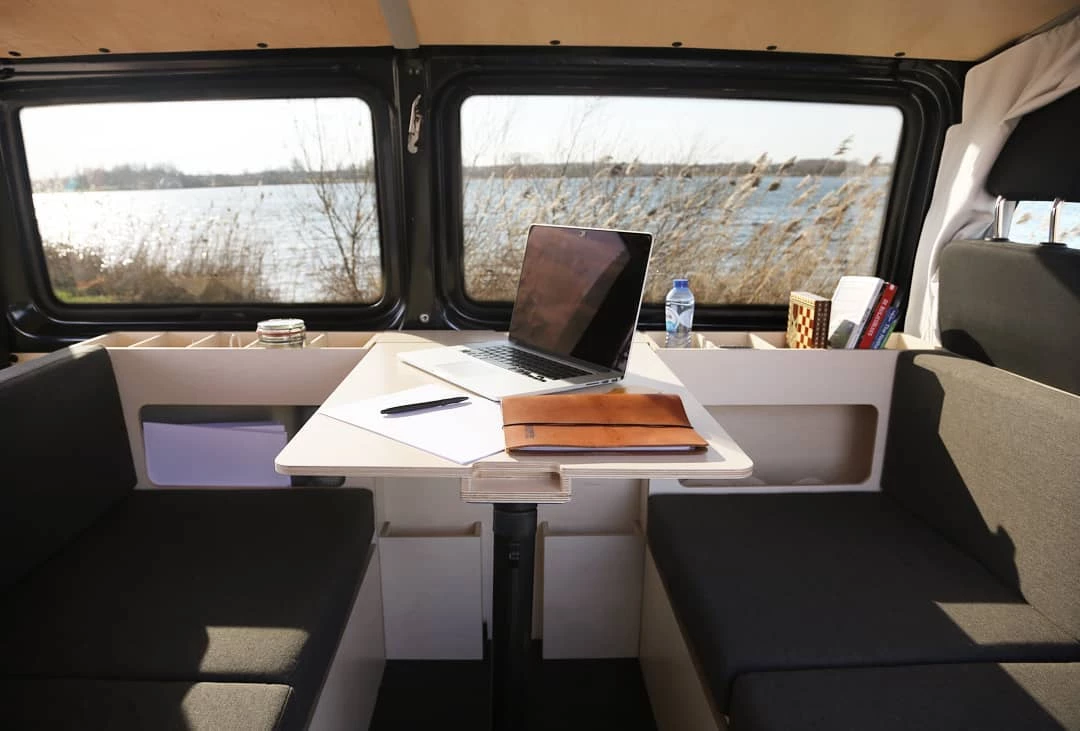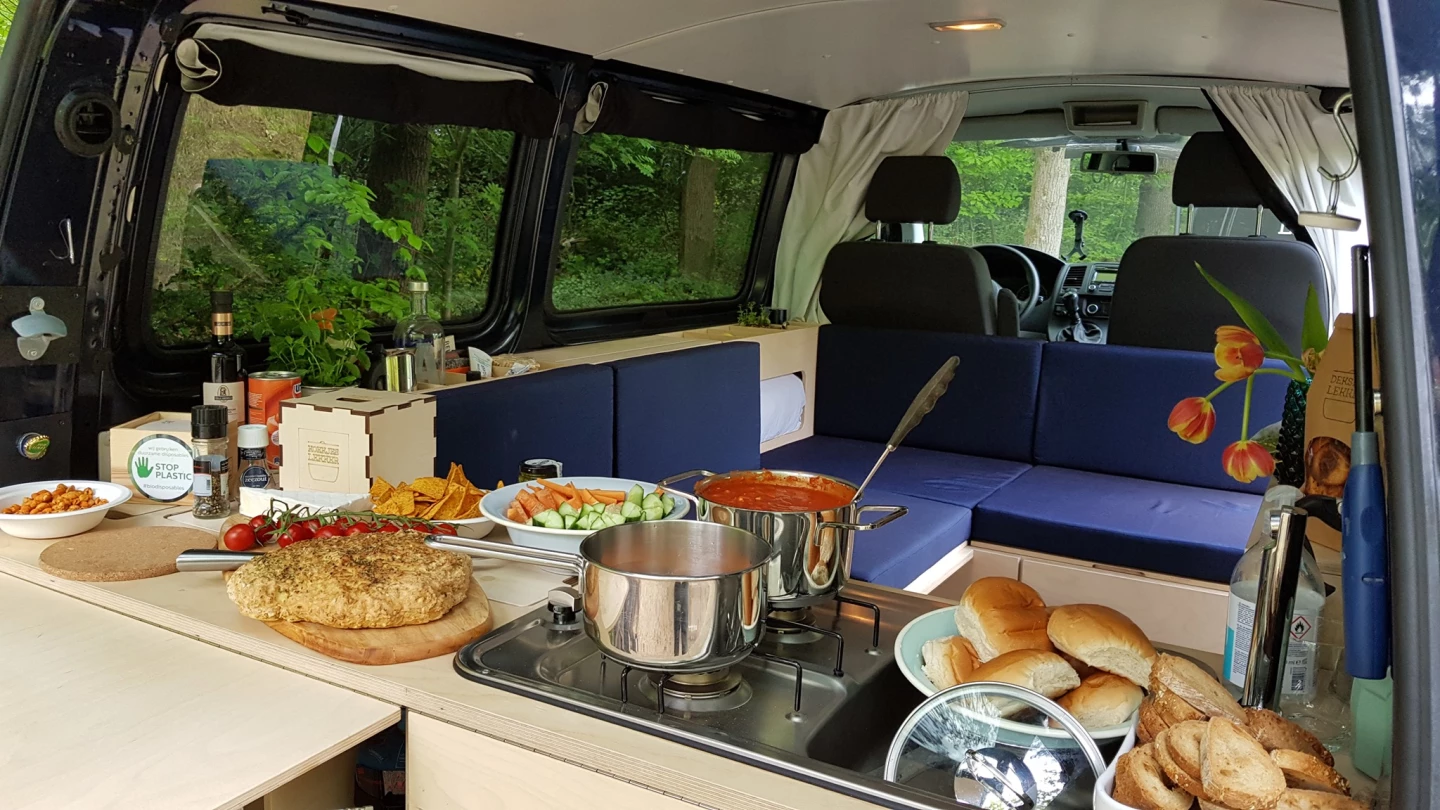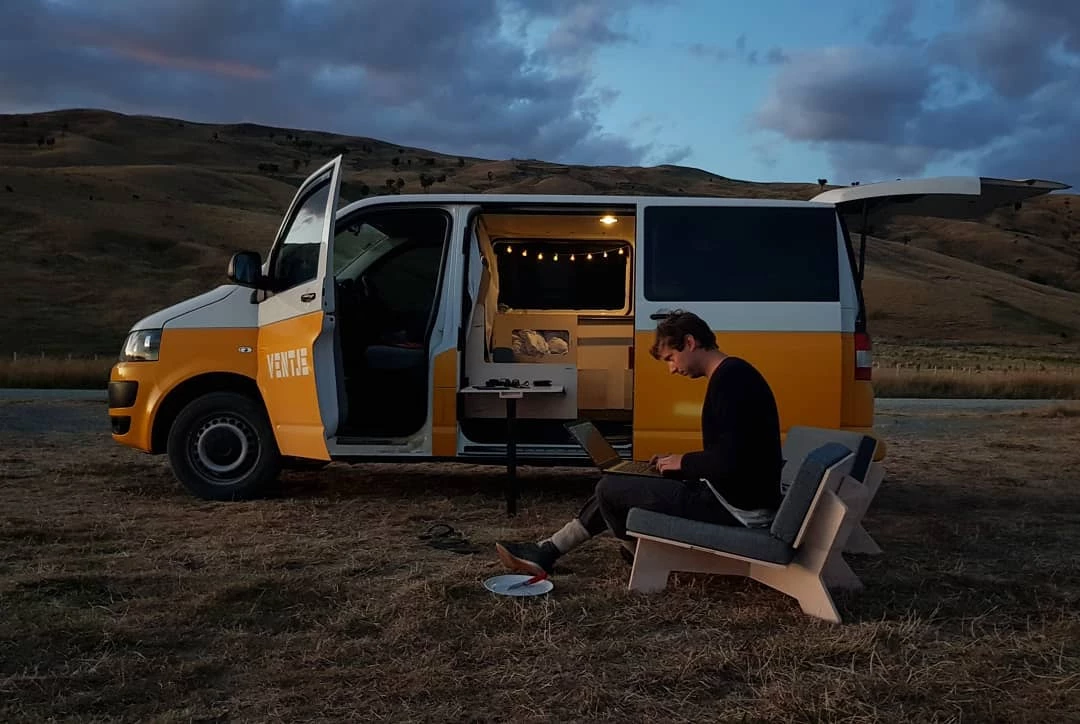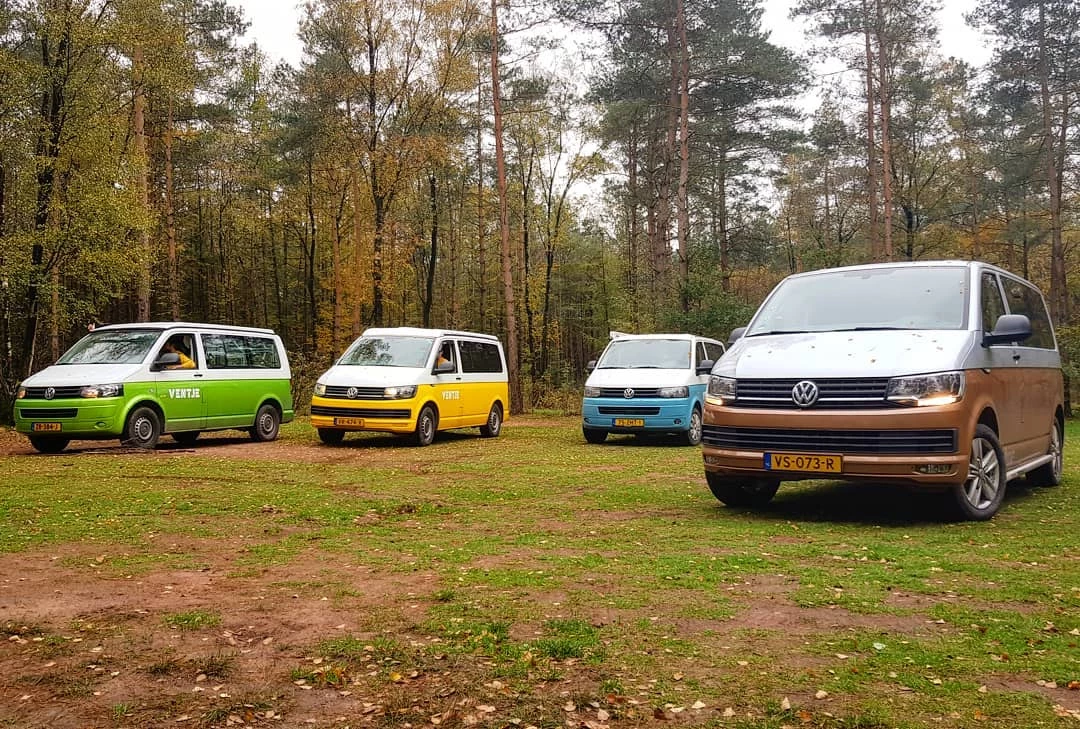We've seen countless Volkswagen Transporter camper vans over the years, but we've never seen anything quite like the Dutch-made Ventje van. That's surprising because the van has a simple, intuitive layout combining the best aspects of several other camper van designs. It includes a flexible central lounge that serves as a bedroom, living room, dining room and office, a tailgate kitchen that supports indoor and outdoor cooking, and convertible interior furniture that morphs into outdoor seating.
Usually midsize camper vans have their beds at the rear, but Ventje pushes the bed forward into the center of the van, where it serves as a multipurpose convertible lounge. As a bed, it measures 210 cm (83 in) long by 140 cm (55 in) wide at the rear, tapering in around the door well to 125 cm (49 in) wide.
Rearrange a few cushions, and the bed quickly becomes an L-shaped sofa with cushioned back. Switch a couple more cushions around, and you have a dual-bench vis-à-vis lounge. The table is integrated neatly into the wall between the benches, flipping up when it's time to eat dinner or pull out the laptop.

While the Ventje lounge is clever and nicely implemented, it's not so different from the multi-position bed/lounges that other brands build into the rear of their camper vans. Ventje pushes it forward to the van's middle to make room for a full-width rear kitchen just inside the lift-gate. This is our favorite part of the build because it allows the kitchen to be used from inside or outside without any conversion, essentially combining the advantages of the two other common camper van kitchen options. As an indoor kitchen, it gives campers the option of warm, sheltered cooking in the van. As a tailgate kitchen, it lets campers cook outside in nice weather, with the benefit of the tailgate's shade and weather protection.
Ventje places the dual-burner stove/sink combo on the narrow countertop, where it can be easily accessed from outside or in. The sink faucet is on the side of the basin to provide seamless operation from either position. The cutting board can slide back or forth as needed, and the refrigerator is easily accessible below a hinged counter panel that also helps chefs slide food waste into the garbage bin in the neighboring compartment. Users can easily access the contents of the bidirectional drawers from either side of the van.

If the weather is nice enough to cook outside, then it's probably nice enough to eat outside. For those times, campers can create a pair of cushioned outdoor chairs in minutes using chair base components stored away below the in-van benches, topped off with the same cushions used inside. The tabletop removes off the van wall and attaches to the outer bench frame to finish off the outdoor dining/work area.

The Ventje van lacks the full-height wardrobe that camper vans often include, but it does have storage compartments on the driver and passenger sidewalls. More storage space is available under the benches. A leisure battery powers electrical outlets spread out around the interior lounge and kitchen.
As flexible as the Ventje van is at camp, it's even more flexible on the order sheet. In addition to usual options like a portable toilet and solar panel, buyers choose how many windows they want, from a stealthy panel van with only driver-area windows to an MPV with six side windows complementing the front and rear windshields. They can maintain the hard factory roof, add a non-sleeper pop-up roof to create a standing-height interior, or go with a pop-up sleeper roof for a four-berth camper. Buyers also choose whether they want the pop-top to open from the rear or front.
The only big disadvantage we see with Ventje's design is that it deletes all rear seating, so the VW Transporter can only carry up to three people in front. So you can create a four-sleeper with the pop-up roof, but you can't legally carry those four people to camp in the single van. You also don't have the multi-row everyday driving utility that many midsize camper vans offer. But plenty of other camper vans are permanently laid out for two people, so Ventje is not alone in lacking rear seating.

Ventje offers its conversion for VW T5, T6 and T6.1 vans and can either secure the van itself or convert a customer's van. It will add the desired number of rear windows to vans that do not already have them. Prices vary accordingly, but we used Ventje's online builder to create a simple blue-and-white van with hard roof, full Ventje interior, four side windows, rear windshield and no optional upgrades. The quoted price was €22,500 (approx. US$26,575) for the conversion and roughly €14,000 ($16,525) for the used VW van, depending upon model year, mileage and equipment. Ventje also offers rentals in Utrecht.
Source: Ventje
















